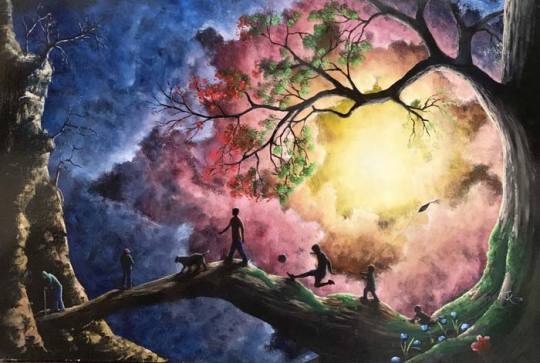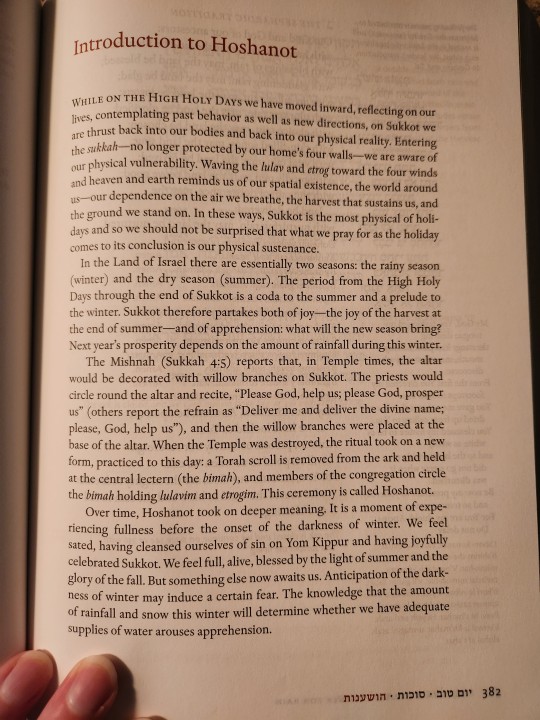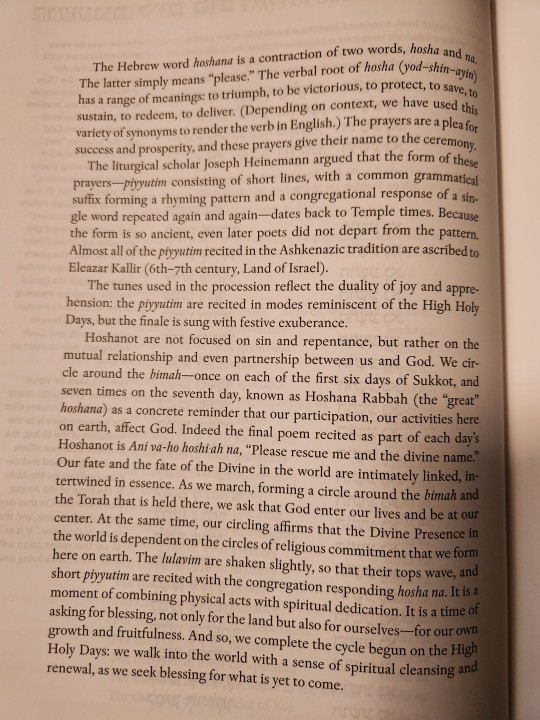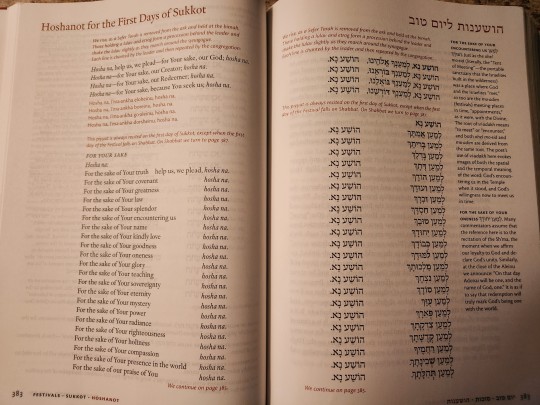#within christian theology.
Note
bro there are tons of religious traditions that came up with a concept of heaven without any concept of hell?
i know, my post was specifically about the christian concepts of heaven and hell, because those are what i grew up with. which is why i used a quote from christian literature as an example. i had no intention of making any generalised statements about religion and common concepts that feature across different religions as a whole, so i'm really sorry if it came across that way and i said something offensively ignorant. i'd be happy to correct my mistake and learn from it if that's the case.
#i wasnt even trying to blanket paint christianity as a whole as a 'bad' institution#just commenting on the more authoritarian popular concepts within its theology
156 notes
·
View notes
Text
i’m in this strange phase where i’m trying to explore my spirituality and to understand what divinity means to me and it’s just. hard. complex.
i was raised in an atheist family but now i know, deep down, that i am not an atheist. but atheism is still inscribed in my brain, the shame of worshipping, the shame of honoring the divine, as if it should be hidden, as if i was being irrational.
i have been practicing, or trying to practice, hellenic polytheism for a little while now. i keep going through phases of faith then of doubt. something isn’t quite right yet.
i love religions— all of them interest me. i just decided i wanted to read the Old Testament, so i’m reading the Genesis now. and i’ve been doing research on Judaism, out of curiosity. it fascinates me— but especially the rules. the constant connection to the divine, even in mundanity. the concept of every action having a purpose, of doing things a specific way and knowing why, of finding God everywhere and honoring God all the time. i see a lot of people being scared of religious obligations, of organized religion, and i understand how it can be dangerous at times, but i yearn for the order, for the meaning.
i want organized worship and i want to find God every day. i want to do everything with the intention of connecting to the divine. and yet i don’t know what the divine is, what God(s) is (are), and i still believe monotheism isn’t for me, something about it bothers me— but maybe it’s just christianity ? i don’t know anything anymore. i know polytheism interests me too and i know my autistic special interest is ancient greek religion and ancient cultures, but it’s hard to draw the line between what interests me due to my autism/simply because i find it amazing to learn about, and what interests me because it feels right and aligns with the way i perceive things.
so i keep doubting, i doubt and wonder and question and find myself irrational whenever i think of a God, or of multiple gods/Theoi. i know i believe in something. but there is this atheistic guilt, atheistic shame ?
i’m so lost.
and everyone i know is either an atheist or a usually-not-very-observant catholic. so exactly what i already know not to be for me.
#judaism#hellenic polytheism#religion#theology#religious beliefs#divinity#helpol#polytheism#monotheism#paganism#trying to figure out what religion makes sense for me#and it’s scary#quite often i wish i had been raised within an organized religion so that i could have felt the order and the rules and the meaning#and then could have decided for myself whether or not it felt right#i would never have felt good in christianity#and i know i’m lucky because being in an atheist family protected me from religious trauma#but still#i feel lonely#and purposeless#i’m still trying to find god(s)
40 notes
·
View notes
Text
Laying here crying about the Book of Ruth having a very normal night
#book of Ruth#religion#the mixing of the blood in the line of David!!!#the breaking of religious law out of love/faith!!#walking towards the unknown as a stranger in a strange land with eyes wide open but also heart wide open#hand in hand with those so very different from you but who you know will always catch you if you stumble#the most sacred of promises: where you go I go. where you lie I lie. your people will be my people.#*screams*#there’s something about her that’s so interesting…both within her internal narrative and in the context of larger jewish theology#(and also again the strange echoes and narrative parallels between her and jesus in christian theology have me going insane.#love and integrity above law and order from the son of the house of Ruth)#shut up e
18 notes
·
View notes
Text
sooooo……. there’s some ConversationTM* going around the theology (and adjacent) girlies tonight and it’s got me very intrigued—are there really more options than just Calvinist/Arminian?? bc I’ve always been raised with this idea that those are The Two Options regarding salvation theology and how exactly it all plays out. but apparently that’s…. not the case??
Iwill add that yes, Molinism is a thing that exists, and I know of exactly one guy who’s a theologian and philosopher and who believes in that lol. it’s not exactly a super common alternative to the others. and then I do believe Catholics have a slightly separate view as well, but I’m mainly just talking about soteriology within Protestant theology here anyway.
*(I won’t say ‘DiscourseTM’ bc that seems more antagonistic than what I’m seeing around here rn; everything seems to be in good faith and just for the sake of pointing out minor discrepancies atm)
#I will add that I’ve largely been raised in Baptist churches but my family is… not really that#we’re definitely a bit more wesleyanish in our theology#and that’s what I’ve always been taught at home from my own parents#but I definitely was also always under the impression (and I think my parents may be as well) that Calvinism/Arminianism is like. a binary.#you are one or the other. and there are levels within each. but there aren’t really any third options. all denominations trace back there.#(tbh this is a huge reason why I desperately wish I had been given better theological training when I was younger#because suddenly I’m an adult and quite set in my views and opinions theology and also have a long-standing Fite Me sort of mentality#towards Bible teachers in general due to some very unethical ones we encountered a Lot throughout my childhood#and a tendency to want to die on the smallest and most arbitrary theological hills imaginable#AND an extremely strong adherence to a set of theological tenets that… I am recently discovering possibly aren’t at all what the people who#taught them to me thought they were…#so like. now in a lot of ways it feels like I’m basically having to unlearn and relearn a bunch of extremely basic stuff about all this#while also dealing with the constant fear of ‘giving up’ and either leaving the faith entirely or embracing a completely foreign brand#that’s not at all what I was raised with and still do hold to be true and accurate and good)#gurt says stuff#theology#religon#christianity#faith#knitting circle
11 notes
·
View notes
Text
one thing that i genuinely enjoy about the whole alexandria angle of the plot / supernatural devices is that it really plays to the anglo fascination with (ancient) egypt at the end of the 19th / early 20th century, quentin is contemporaries with lord carnarvon and it shows, all we need is them eating mummies.
#ds liveblogging.#i dont think laura *needs* a theological explanation but it's a fun way to do it situated within the 19th century simulacrum#and the show is airing when the met is receiving the temple of dendur and things like that.#just a fun little mini moment ! and a good counter to the christian theology with the trasks / satanism with evan et all#i was convinced as a kid i was gonna grow up to be z.ahi h.awass it's bringing it all back lmao.
4 notes
·
View notes
Text
When Six animatics have Anne Boleyn destroying a rosary/cross/other religious symbol… I don’t think the real Anne would appreciate that at all
#Sixcourse#Anne Boleyn#like tell me you don’t actually *know* anything about her without telling me#and I get that the musical doesn’t depict her as *extremely* religious#but it’s still reasonable to assume *within the context of the musical* that she’d be a Christian#and… I gotta tell you#there is a *vast* difference between a 16th-century Reformist and a rebellious raised-Christian Millennial/Gen Z-er#(moreover the West End productions at least acknowledge that the real Anne was interested in theology)#(and tbh one of the (many) reasons I love Amanda Boleyn is that I feel she leans into that)#this has been Discourse With Bio#discourse of the fandom variety#Ex-Wives#Don’t Lose Ur Head
13 notes
·
View notes
Text
Keys to the Kingdom: A Desire To Know
Keys to the Kingdom: A Desire To Know
“To you it has been granted to know the mysteries of the kingdom of God, but to the rest they are told in parables, so that while seeing they may not see, and while hearing they may not understand.”
-Luke 8:10
Before you let the word mystery scare you off I promise you this isn’t a ruminative guide to finding some clandestine tenets hidden in scripture. We won’t be practicing any remote viewing…

View On WordPress
#christianity#esoteric christianity#inner transformation#inner wisdom#keys to the kingdom#kingdom within#mysticism#parables#spirituality#theology#wisdom tradition
2 notes
·
View notes
Text
ughghghghghhg white westerners shut the fuck up challenge
and to preface this. this is honestly abt the absolute bullshit that white ""leftists"" like to pull. like im sorry but half of u are white supremacist antisemites who make fun of genocides.
#haha potato#joke#not directed at anyone in particular#not at my mutuals or followers#politics#the next person to make a fucking joke within a km of me will be garrotted#slash j for legal reasons#like im sorry but if you think its okay to about genocide based on ethnic and religious grounds. go fuck yourself.#millions dying and being displaced is not a fucking joke for americans to laugh at.#and also. white americans. try to remember ur in a literal colonial state yea?#and maybe learn about other countries??#bc i am absolutely fucking certain that my african zionist friends are bullied by goyim who dont know shit about theology or geography#NB!!! african zionism =/= zionism. it is an african syncretist faith combining christianity and traditional southern african religions#it is NOT in support of the apartheid state of israel#and it is honestly racist to imply that it is.#also. not an expert on african zionism here. im sure there are people out there who are african zionists who can explain it a lot more#in depth and a lot better
2 notes
·
View notes
Text
The Theology of Wellness: Nurturing the Divine Within
Rooted in a theological perspective, the theology of wellness weaves together the sacred and the physical, emphasizing the interconnectedness of the divine within every facet of our being.
In the intricate tapestry of human existence, the pursuit of wellness is often viewed through the lens of physical health alone.
However, a profound and holistic understanding of wellness extends beyond the confines of the body, delving into the realms of the spiritual, emotional, and mental dimensions.
Rooted in a theological perspective, the theology of wellness weaves together the sacred…

View On WordPress
#1 Corinthians 6:19-20#bodies are temples of God#Christianity#faith#God#interconnectedness of the divine within#Jesus Christ#mens sana in corpore sano#mental health#The Theology of Wellness#theological framework for wellness
0 notes
Text
(ah shit i also disagree w/ the stuff about gods & perfection, but that’s mainly bc mainline (esp evangelical) christianity defines perfection in this wildly fucked up way where it’s like. based on power & God is perfect bc God is the most powerful. the love/forgiveness stuff just ends up used as a battering ram to be like ‘forgive ur abusers & oppressors & be nice to them’. i don’t think expecting your gods to not be dicks is unreasonable, & the concept of, like, everyone being ultimately loved & valued just bc they are rather than bc of what they do is important to me. & from a rehabilitation/redemption pov, still loved/valued/worthy of human rights but also very much needing to make amends for their wrongs & usually needing to be separated from some aspects of community until they can engage more safely.)
#making my first original post in like 90 years just bc#i cannot shut up about this#christianity isn't a monolith tbf like. ethiopian christians & palestinian christians & latin american or Black liberation theologians#aren't in the same league as white christians#but white/hegemonic christianity has been so profoundly damaging that distinguishing between evangelicals or cofe or catholics when they all#have fucked up history & ties to awful things#if differing theologies & differing theologies/practices even within themselves#kind of bypasses what i'm assuming is the main point - the material damage done by christianity
0 notes
Text
Btw the reason gentile pagans are fixated with Lilith is because she is the parallel to their fixation with "Lucifer," or "Satan," as a means of deconstructing their fucked up relationship with Christianity and Christian theology, and the internalized terrible garbage they picked up from Christian normativity, even if they weren't previously practicing Christians.
Lucifer/Satan gets to replace Jesus/God (the representation of XYZ Christian theologies they have issues with) and Lilith gets to replace Eve (the representation of XYZ Christian theologies relating to women that they have issues with).
The replacements represent - to some extent - themselves. They choose means of interpreting these characters that specifically make them into people who were unfairly victimized (within Christian theology) and marginalized, and who were ultimately "right." Or more "powerful," or ultimately more sympathetic/human/compassionate.
It's a fantasy wherein they get to validate their own frustration/pain/feeling of exclusion or powerlessness/treatment of being seen as an "ungodly" or "bad" person, and then make that person who typifies those things in their mind as the real hero, regardless of how doing that affects other people, or even if it makes sense.
It's actually very transparent when you think about it. I can almost guarantee Lilith would hold almost no sway to any of them if she wasn't explicitly mentioned as a counterpoint to Eve.
#they could just go worship ishtar or whatever but that wouldnt scratch the same psychological itch#none of these people want to worship lilith a screetch owl they want to worship lilith counterpart of eve#theres nearly identical babylonian parallels re: sex demonesses and child killers but that doesnt hold any interest for these people#and theres a reason why lol
839 notes
·
View notes
Text
To follow up on my Hosanna poll, I think before things go any further, it'd be good to actually explain and define it. I was initially going to wait until the end of the poll, but it seems that google is giving people a lot of bad and/or conflicting answers and I'd rather people walk away with the correct information.
So! Hosanna is an anglicized version of the Hebrew words "hosha na" [הושע נא or as a contraction הושענא]. Hosha na is a little enigmatic and hard to translate, but the simplest translation is probably "save us, please." It's traditionally used as an exclamation to G-d to rescue us, but it also has shades of being a triumphant shout (the implication being confidence that G-d will save us.)
Jews say "hoshanot" (the plural of hosha na) as part of our traditional Sukkot liturgy, and is something we do still today.
For us, the multi-faceted meaning of the root word allows us to have multiple layers of meaning. During Sukkot, we start praying for rain in its proper season and amounts, and we shake the lulav and etrog as part of these processions and liturgy. On Hoshana Rabba [the "great hoshana"], the last day of Sukkot, we process around the bimah (front lectern) seven times as a completion of our season of repentance and our starting of the new year with abundant blessings.
My siddur (prayer book) Lev Shalem has this as an explanation and translation:



[Image ID is of the Lev Shalem siddur, pages 382 & 383 - I tried hard to find a pdf of this that would be readable using a screen reader, but the versions I'm finding cut off at pg. 376 at the latest. If anyone has bandwidth to type this up, I would greatly appreciate it]
For the curious, here is a recording of the Hoshanot liturgy and procession:
youtube
Christians mostly know the word from the gospels and hymns.
Here is what Wikipedia says about its use in Christianity:
Historical meaning
Since those welcoming Jesus were Jewish, as of course Jesus himself was, some would interpret the cry of "Hosanna" on the entry of Jesus in its proper meaning, as a cry by the people for salvation and rescue.
Christian reinterpretation
"Hosanna" many interpret as a shout of praise or adoration made in recognition of the messiahship of Jesus on his entry into Jerusalem
It is applied in numerous verses of the New Testament, including "Hosanna! blessed is the one who comes in the name of the Lᴏʀᴅ!" (Matthew 21:9,15; Mark 11:9–10; John 12:13), which forms part of the Sanctus prayer; "hosanna in the highest" (Mark 11.10); and "hosanna to the Son of David" (Matt 21:9). These quotations, however, are of words in the Jewish Psalm 118. Although not used in the book of Luke, the testimony of Jesus' entry into Jerusalem is recorded in Luke 19.
In church music
The "Hosanna Anthem", based on the phrase Hosanna, is a traditional Moravian Church anthem written by Bishop Christian Gregor of Herrnhut sung on Palm Sunday and the first Sunday of Advent. It is antiphonal, i.e. a call-and-response song; traditionally, it is sung between the children and adult congregation, though it is not unheard of for it to be done in other ways, such as between choir and congregation, or played between trombone choirs.
The bottom line:
Jews and Christians have different connections, associations, and meanings attached to this word as expressions of our different theologies and texts. The word is derived from a Hebrew word and was created by Jews and is still used by us today. (Like literally today - we are currently in the middle of the Sukkot festival.) Christians changed the meaning to fit within their own context, and pronunciation of the word evolved with linguistic drift over time. In the same way that there's not a reason to pitch a fit over saying Jesus rather than Yeshua, there's no compelling reason to change hosanna back to hosha na; if anything, the distinction helps make it clear that it's effectively a different word and concept from ours.
On the other hand, I do think Christians ought to know the original meaning of the word if they're going to use it. To only ever know their version when it was derived from ours is yet another small way of playing into supercessionism by erasing and replacing the Jewish context of things that were originated in Judaism that Christians have embedded in Christianity. While the Christians of today cannot unwind the supercessionism of Christian history, they *can* choose to understand their present Christianity in ways that do not play into supercessionism and that respect the Jewish community of today.
I hope this was helpful and gives folks a new perspective on an obscure Hebrew word!
472 notes
·
View notes
Text
Reverend ██████ Segreti - Priest of Site 19

Reverend ██████ Segreti is the head priest to the recently installed church of Site 19. Due to the increased requirement for religious (primarily Christian) needs for the SCPs and staff, the church has become a permanent addition to the foundation.
Reverend Segreti went to catholic school all his life. The influence eventually led him to a seminary in the Vatican City where he got an Associate's in Philosophy and Bachelor's in Theology. After his bachelor's, he served a few years as a military chaplain before returning to the seminary to continue his studies. While acquiring his PhD in Theology and Biblical Studies, he served as a priest in the Vatican City. A few years later, he wished to travel, so he went to several churches in Europe and the Americas. He was traveling around Illinois when he was approached with a job offer from the SCP Foundation upon their installation of a permanent on-site church. He accepted with a curiosity about the foundation and the services they have to offer.
Reverend, only being on-site for a few months, spends most of his days meeting SCPs (e.g. SCP-166) and holding prayers and confessions for available staff members. Not until later did many employees show interest in attending Sunday services. The Reverend's duties extended to performing mass and bible studies.
Several tend to question the Reverend's willingness to continue to serve within the foundation due to his exposure to the inner workings of the foundation and how they may test his faith. Any religious preservation may be due to his relationships with several doctors and their advice in maintaining sanity (what little it may be).
#scp foundation#scp fandom#scp art#scp fanart#scp#scp site 19#scp oc#oc x canon#reverend segreti#my art#reference
171 notes
·
View notes
Text
There are several historical contexts for what is going on now in Israel-Palestine that cannot be ignored. The wider historical context goes back to the mid-19th century, when evangelical Christianity in the West turned the idea of the “return of the Jews” into a religious millennial imperative and advocated the establishment of a Jewish state in Palestine as part of the steps that would lead to the resurrection of the dead, the return of the Messiah, and the end of time.
Theology became policy toward the end of the 19th century and in the years leading up to World War I for two reasons.
First, it worked in the interest of those in Britian wishing to dismantle the Ottoman Empire and incorporate parts of it into the British Empire. Second, it resonated with those within the British aristocracy, both Jews and Christians, who became enchanted with the idea of Zionism as a panacea for the problem of anti-Semitism in Central and Eastern Europe, which had produced an unwelcome wave of Jewish immigration to Britain.
When these two interests fused, they propelled the British government to issue the famous – or infamous – Balfour Declaration in 1917.
Jewish thinkers and activists who redefined Judaism as nationalism hoped this definition would protect Jewish communities from existential danger in Europe by homing in on Palestine as the desired space for “rebirth of the Jewish nation”.
In the process, the cultural and intellectual Zionist project transformed into a settler colonial one – which aimed at Judaising historical Palestine, disregarding the fact that it was inhabited by an Indigenous population.
In turn, the Palestinian society, quite pastoral at that time and in its early stage of modernisation and construction of a national identity, produced its own anti-colonial movement. Its first significant action against the Zionist colonisation project came with al-Buraq Uprising of 1929, and it has not ceased since then.
157 notes
·
View notes
Text
How would I describe my religious beliefs?
I'm a revolutionary socialist Latter-day Saint who is reconnecting with historical worship and practice that was anti-racist, feminist, and inclusive, while simultaneously decolonizing later contributions that were either xenophobic trauma responses brought about by polygamy or exports from Protestant evangelical Christianity; in partnership with other Latter-day Saints who are expanding that definition of inclusion to embrace our LGBTQ+ community and history, together with interfaith leaders who are engaged in similar processes with their congregations.
But that doesn't fit in a bio, so I just keep calling myself LDS and Mormon interchangeably as a shorthand for "I may be religious, but no one is the boss of me," which is perfectly understood within my own community because our leadership is on a "Don't say Mormon" kick right now, but it means nothing to interfaith people who hear Mormon and instantly think "radically conservative, sheltered door knocking dorks, possibly a polygamist," which is valid while still being unreliable in its accuracy because it represents many, MANY different schisms and communities that most people don't know about. Not unlike the Hicksite or Mennonite distinctions for Quakers and Anabaptists, respectively, for those who are familiar.
I'm a chaos of theology that I've ferreted from Mormonism, which is already a maximalist stuff room full of trinkets and doodads, as well as those from other faiths because I enjoy experiencing the sacred with anyone who is also seeking it, but in a way that respectfully Leaves No Trace and honors the dignity in absolutely everyone.
So yeah. Original sin can eat my shorts. God is the title of my Daddy AND Mommy. Scripture has no inherent authority. There is no hell and one of my biggest motivations for the afterlife is to be reunited with all of my cats. The heavens are open and God speaks to all, bitches! Brigham Young was a racist and he owes me a fight in a Wendy's parking lot. Let's gooooooo!
#mormon#lds#mormonism#tumblrstake#religion#the church of jesus christ of latter day saints#faith#queerstake#feminism#christianity#interfaith
148 notes
·
View notes
Text
I think maybe the saddest thing about extremely religious people is that they genuinely believe that you’ll go to hell if you don’t accept their Lord. I mean this mostly about Muslims, I can’t speak much for Christianity
I was raised in a Muslim country. In the schools there all Muslim students had to attend Islamic studies classes, while the non-Muslim students had moral science classes.
Aside from Islamic history and theology, one of the first things that I was taught that really stuck to me, was that people who rejected the word of Allah would be sent to Jahannam (Hell). Those who were ignorant of the True Religion would be spared but anyone who had heard the Truth of Allah and didn’t accept it? They would go to hell. My teacher even said that in this day and age, with access to the internet, no one has the excuse of being ignorant now.
It terrified me. What about my friends? My school had Hindus and Christian galore. What about them? They were good people. Were they going to hell? Couldn’t I help them? One of my other Muslim friends actually started sobbing about it. “Rem.. I don’t- I don’t want my friends to go to Hell, Rem”
We were Seven. Years. Old.
No kid deserves that
And as I’ve grown older I’ve only seen more of it. And I feel heartbroken. These are people that truly believe in their faith and within that belief they’re taking the most moral action they are capable of taking. They don’t want people to go to hell. They want people to go to heaven. They are so fearful of their Lord that they’re willing to be the bad guy in this life to see you next to them in Jannah (Heaven). They believe that. With their entire hearts and it crushes me every single time.
I think about it every time my mother talks about modesty. I think about it every time my father reminds me about prayer. Everytime one of the elder relatives reminds us kids to read the Quran.
I think about it every time I remember that I told my sister that I was terrified that one day she wouldn’t keep my sexuality a secret because she believed it would be the morally correct thing to tell my parents and she couldn’t look at me and say that it wouldn’t happen.
And I’m never going to be able to hate them for it, because I’ll know in my heart that they’re doing what they’re doing with the best of intentions even if it fucking kills me and every damn time I think about it it makes me burst into tears
#rem rambles#tw religious mention#tw religious trauma#ex muslim#ex religious#the inherent guilt of existing as a Muslim
231 notes
·
View notes